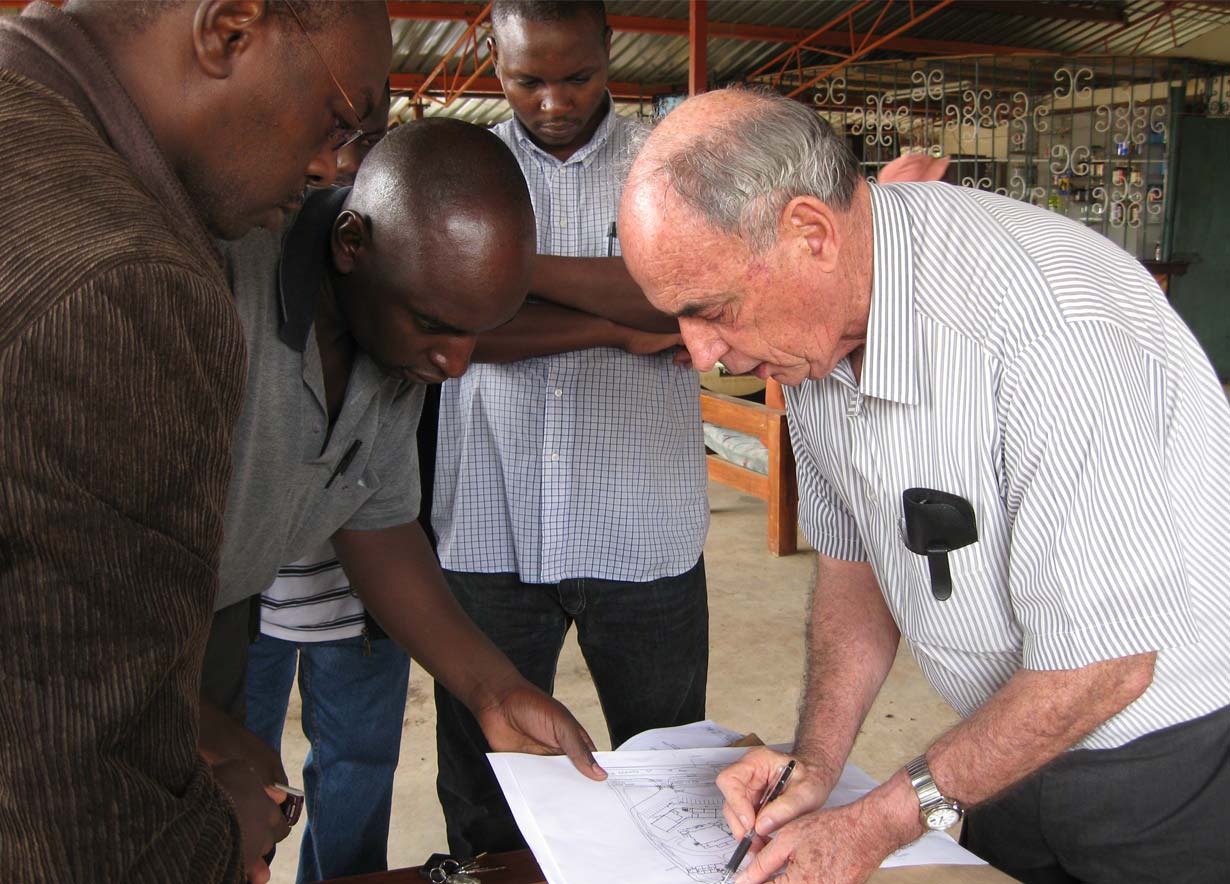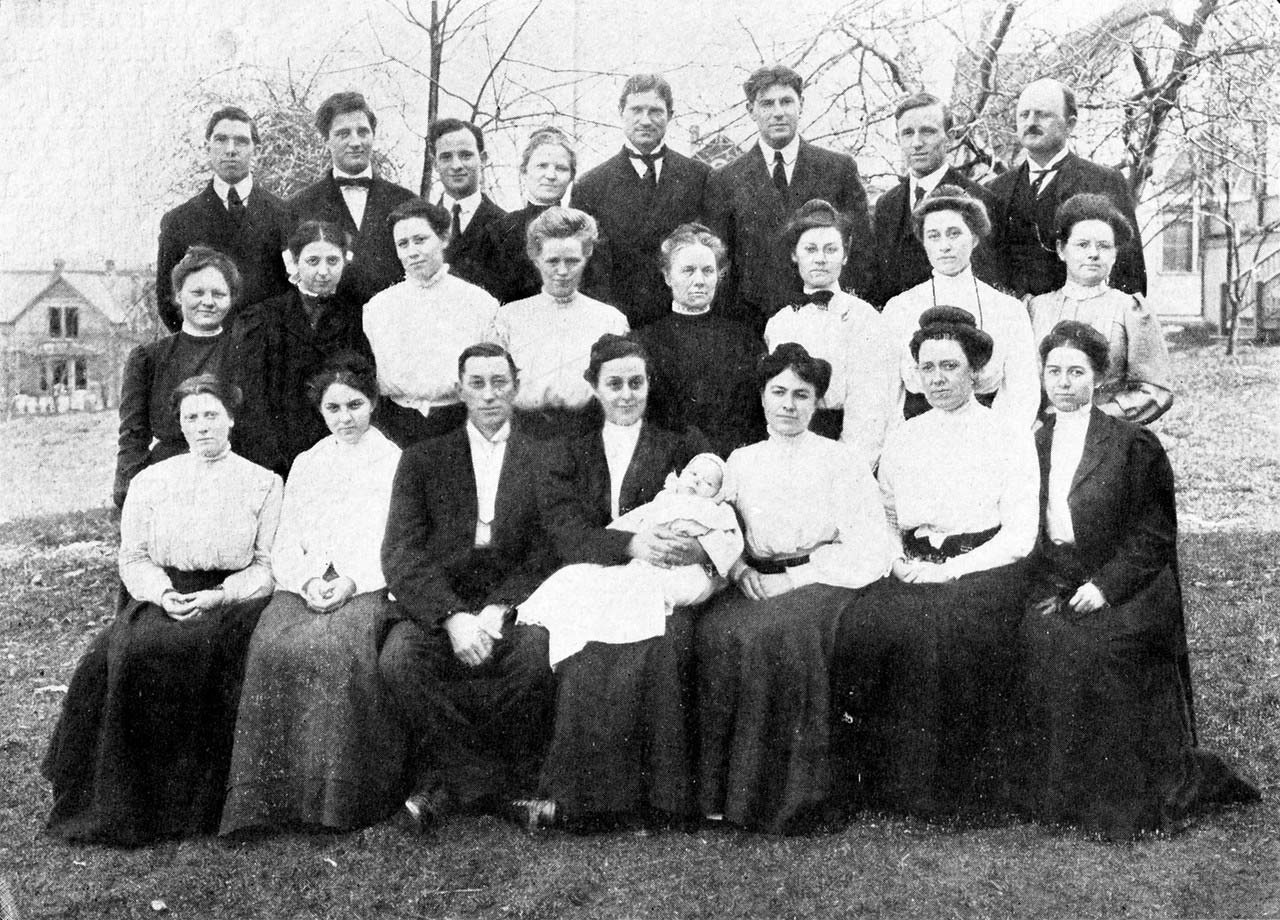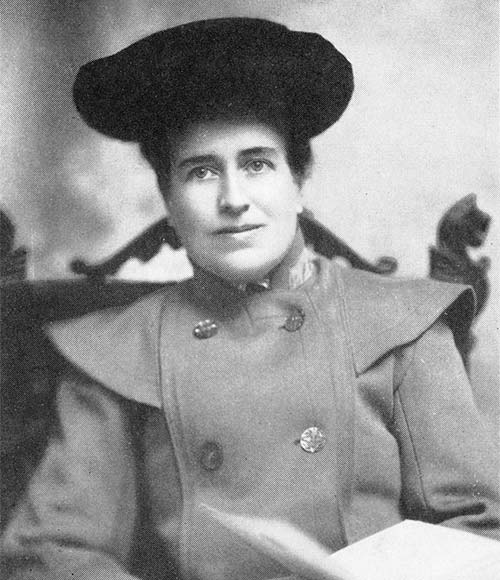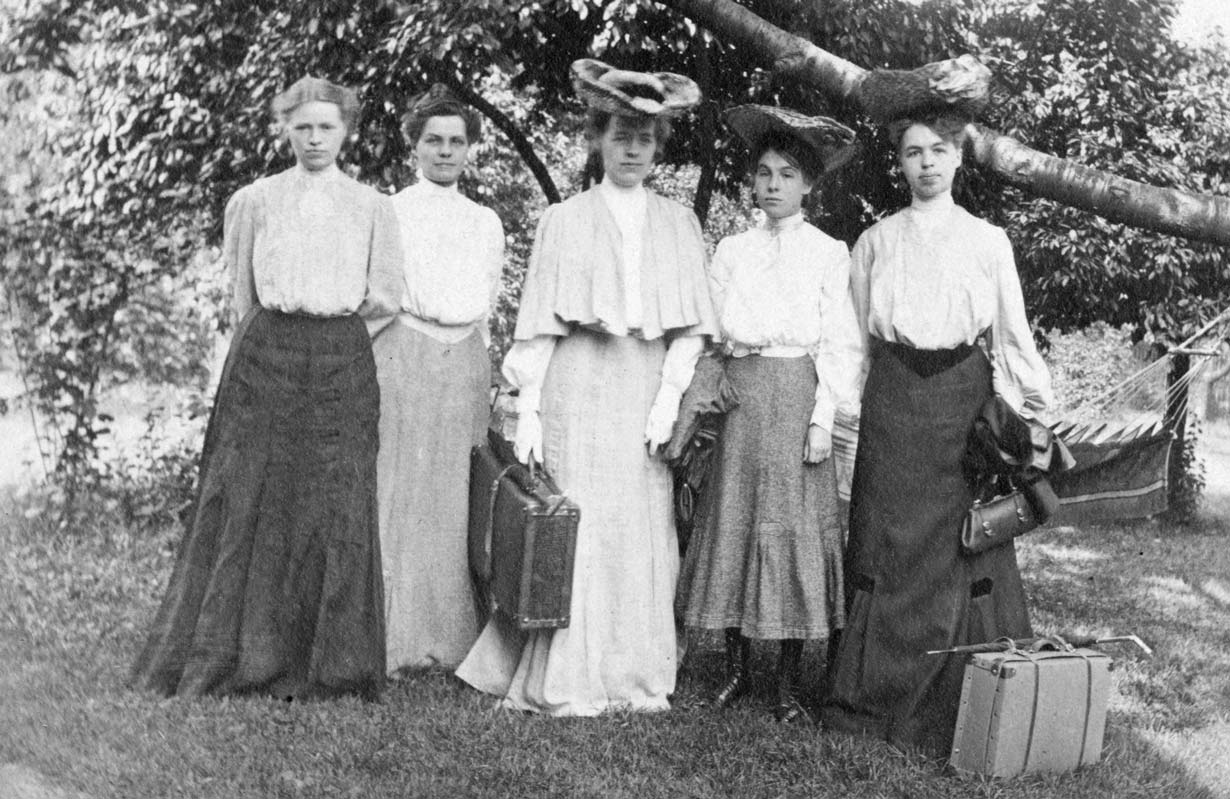
From Everywhere to Everywhere
What missionary life looks like in an age of global Christianity
by Julia Siemens | Illustration by Keith Negley
David Leong likes to tell his Seattle Pacific University students that, as they are flying to serve internationally, planes crossing them in the sky are carrying Christians from other countries to the U.S. for the same reason.
“The boundaries and geographies have become much more fluid: an everywhere-to-everywhere movement,” says Leong, who is an associate professor of missiology at Seattle Pacific University. “While many people still travel across oceans, many others find their cross-cultural callings in their own cities, neighborhoods, and local communities.”
In fact, the U.S. is both the largest sending and receiving nation of missionaries, according to the Center for the Study of Global Christianity. And the geographical center of Christianity is located in Niamey, Nigeria, with an equal number of Christians located to the north, south, east, and west of that city. This was definitely not the case 125 years ago when Seattle Seminary was founded with a desire to preach the good news of Jesus Christ to the nations.
In the early 1890s, founding faculty members Adelaide Beers and Mary Burrows spent a memorable night praying that God would “make Seattle Seminary a missionary school,” as reported 18 years later in the 1909 yearbook. By then, 18 foreign missionaries — out of about 80 graduates — had already been sent abroad to countries such as China, India, and Japan.
Today, more than 1,000 alumni (seminary, college, or university) have served in Christian missions outside the U.S., according to a 2015 report from SPU. And as the world has changed greatly in the past 125 years, so has the world of international service and evangelism.
 Ken Edgar ’61 suppported the construction of a training center in Kenya for DOOR International, a sign-language Bible translation organization.
Ken Edgar ’61 suppported the construction of a training center in Kenya for DOOR International, a sign-language Bible translation organization.
Ken Edgar ’61 and Irene Pettengill Edgar ’64 have spent their lives serving with Christian organizations around the world, including 30 years with Missionary Tech Team, a service organization that offers technical assistance to missionary groups. They were the first accepted applicants to Missionary Tech Team in 1970, and spent 13 years in Ecuador, followed by living in other Latin American countries all over Africa, Papua New Guinea, China, and more.
Ken was a construction manager for camps, hospitals, air strips, Bible translation centers, and even hydroelectric plants. Irene performed many jobs, including substitute teaching and acting as the Sunday school superintendent. When the family lived in Quito, Ken worked on one hospital project in the jungle that could take him eight hours to drive over gravel roads; the same drive now takes four hours on paved roads.
“The explosion of technology has made a huge difference,” Irene says, adding that it affects every area — transportation, communication, Bible access and more. When Ken was working on a project in Liberia, and Irene and their two boys were in Texas, they communicated over HAM radio. Now, families can easily call, email, or video-chat over the internet, which can be accessed through satellite in remote areas. Smartphones have also transformed how people can access the Bible, and it can be done inconspicuously, Irene says.
Technology has also revamped Bible translation work.
 The “Students Volunteer Missionary Society” of Seattle Seminary in 1909.
The “Students Volunteer Missionary Society” of Seattle Seminary in 1909.
“The old-school missionary would live in a village, write down the language, and then start doing translations, and 25 years later the translation would be done,” Ken says. Now translators are able to email chapters back and forth with a Bible consultant and get the material translated faster.
Technology also allows local Christians to be more active participants in translating the Bible into their own language. For instance, the unfoldingWord project, launched in 2015, is an open-source Bible targeted for use by indigenous Bible translators. It enables translators in 48 languages to have access to a complete Old and New Testament without paying licensing fees. “Now translation gets done in a few years instead of a person’s lifetime,” Ken says.
Although officially retired from Missionary Tech Team, the Edgars still travel with several organizations, and are planning on going to Ghana for nine months to help build a school.
“There’s so much going on in the world to advance the church,” Ken says. “It’s really amazing.”
Don Hines ’68 and Myrna Ostrom Hines ’70 are perfect examples of how globalization has changed international ministry. After being in secular careers until 2001, the couple felt called to China Outreach Ministries, which focuses on reaching visiting Chinese scholars at American universities.
 Clara Leffingwell, Free Methodist Missionary to China, inspired many Seattle Seminary students to service.
Clara Leffingwell, Free Methodist Missionary to China, inspired many Seattle Seminary students to service.
“I saw the importance of reaching those who had come to China to teach here,” Don says. “These are influential government officials, sometimes with multiple PhDs. When they go back to China, they’re going to make an impact.”
Despite restrictions in China, the Christian church is stable and growing. By 2020, the Center for the Study of Global Christianity projects that there will be 148 million Christians in China in 2020, making it the third-largest Christian nation.
The Hines spend much of their time at the ministry’s headquarters in Pennsylvania helping to recruit and mobilize other workers. They’ve seen a big shift in the number of Chinese applicants to the ministry.
“When we first started it was very few,” Myrna says. “Now we’re seeing that about two-thirds of applicants are Chinese.”
The organization helps visiting scholars with everything from establishing their household to navigating the medical and school systems. One time, the Hines were hosting a Chinese student over the weekend, who watched a Skype call between the couple and one of their sons and his family.
“When we got off the phone, the young man couldn’t believe that we were friends with our kids,” Myrna says. “That’s how God opens doors for us. People will ask, ‘What makes your marriage work?’ ‘Why are you so happy?’”
The couple have found that those natural opportunities to share their faith have led others to seek Christ for themselves.
“We would love people to come to faith,” Don says. “But we serve them no matter what. We’re not trying to coerce anyone.”
At SPU, teaching students who take summer trips through Seattle Pacific Reachout International, Leong has also seen a shift toward a posture of service.
“In a generation or so, SPRINT has gone from a more traditional short-term mission program to a more nuanced cross-cultural service learning and leadership development model,” he says. “That may seem like a small change, but language, posture, framing, and training are very important.”
 A portrait taken by Kelly Ranck Johnson ’10 of one of the women participating in a World Concern project in Chad.
A portrait taken by Kelly Ranck Johnson ’10 of one of the women participating in a World Concern project in Chad.
This emphasis prepares Seattle Pacific graduates to serve at organizations such as Christian relief and development agency World Concern, which partners with people in extreme poverty around the world.
“I see this as an extension of Christ, who desires wholeness for all humans,” says Kelly Ranck Johnson ’10, “wholeness that comes through empowering rather than enabling.”
Johnson spent two years working for World Concern, writing, photographing, and filming people in East Africa. Based out of Nairobi, Kenya, she traveled to villages in Kenya, South Sudan, Chad, and Somalia. As a communication major and global and urban ministry minor at SPU, she prepared for the position by studying abroad in Uganda, and interning at World Relief, where she spent a lot of time with refugees.
World Concern hired Johnson as Africa communication liason to build bridges to American supporters through storytelling. Now she works in Spokane, Washington, as an employment specialist at World Relief. Her caseload is 50 refugee clients who face major barriers to employment, such as language, lack of child care, or lack of experience.
“It’s cool to see where I’m at now, because I do think that God was preparing me,” Johnson says. “I’m in Spokane, and yet, in my office, I’m speaking Swahili all day. And I can say to people, I’ve been in your country. I’ve been to the refugee camps.”
The same heart for other nations that was alive in that Seattle Seminary prayer meeting almost 125 years ago is still alive at SPU today. Global development is one of the most popular majors. Many students choose to be cultural companions to refugees resettling in the Seattle area. The Falconettes, who are celebrating 80 years, continue to keep in contact with alumni missionaries and pray for them regularly.
“We have been greatly encouraged by notes, gifts, and — most of all — intercession from the Falconettes,” says Myrna, an Alumni Falconette. “Although we are far away, Don and I still sense strong ties to the SPU family, and we sincerely hope that SPU will make mobilizing, equipping, and sending workers into the harvest a top priority.”
 Of the five Peterson sisters to attend Seattle Seminary, (left to right), Mattie, Lily, Sarah, Mable, and Nellie, two of them (Lily and Mattie) felt called to missions, serving the Free Methodist Church in China.
Of the five Peterson sisters to attend Seattle Seminary, (left to right), Mattie, Lily, Sarah, Mable, and Nellie, two of them (Lily and Mattie) felt called to missions, serving the Free Methodist Church in China.
